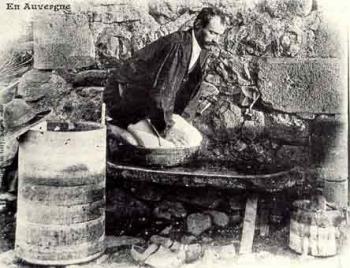do you like chess ?
@rajivkumar900 (9860)
India
19 responses
@HimArticles (1137)
• India
19 Dec 06
Yes, I love to play chess but I haven’t partner to play chess. Some time I play with my PC but I never won the game in expert level, which is very frustrating to me but never play online chess.
@chimex4real2k2 (1853)
• Nigeria
19 Dec 06
i love to play it too would u like a game??
1 person likes this
@fsustriker (826)
• United States
22 Dec 06
Yes, I used to play it all the time with my brother and my dad. I even used to be the #1 chess player in my school for the longest time. Than I just got bored of playing all the time, and now I just play every so often if im online and nothing else is working.
@UcoksBaBa (800)
• Indonesia
22 Dec 06
The game that very interesting and really needed fresh thoughts to be able to play the chess, I really liked the chess
@lakheysub (847)
• India
6 Jan 07
I also like to play chess.but had to leave to concentrate on studies
@missjackie (1357)
• Ypsilanti, Michigan
23 Dec 06
I used to play chess when I was a child. I don't play it anymore, because I find it to be boring.
@maddinair (281)
• India
22 Dec 06
i play with my friends my dad and ya with my girl friends and they lose every time
@incription (281)
• India
22 Dec 06
Well i like to play chess too and spent many hours of my life playing it.
@winnyver (40)
• Brazil
19 Dec 06
Yes Very... The art of the manufacture of cheeses has its lost beginning in the most remote past, nothing less of the one than it has 12 a thousand years before the birth of Christ, in a known period as paleolithic superior. according to legend, the cheese would have been discovered for one of the children of Apolo, Aristeu, King of the Arcadia. The primitive cheese was only coagulado milk, unprovided of salty serum and. From the Average Age, the manufacture of fine cheeses would be restricted to the monasteries catholics, with new prescriptions developed for its monges. The production technique cheesemaker was modernized in elapsing of the time. They are used, in some cheeses, esporos of fungos n ' water and added to milk. The Egyptians are between the first peoples who had taken care of of the cattle and had had, in milk and the cheese, important source of its feeding. This was possible because the fertile valley of the possuía Nile full pastures of cattle. So important it was the bovine for the Egyptians who the symbology of this people eternalized its importance placing cow horns on the head of the Hathor goddess. Sheep and goat, cow done milk cheeses had been also found in many Egyptian tombs. Biblical tickets register the cheese as one of foods of the time. In the Europe, the Greeks had been the first ones to adopt it in its cardápios, made exclusively with milk of goats and sheep, animals that created. However, the Romans had been the responsible ones for the biggest spreading of the cheeses for the world. In the expansion of its Empire they had taken some types to Rome. They had raised the level of the cheese, transforming it of simple food for one she would iguaria indispensable in the meals of the noblemen and great imperial slap-ups meal. The Romans appreciated the cheese, of which they manufactured innumerable varieties and whose virtues knew, therefore they used it in the feeding of the soldiers and athlete. With a deep relation with mythology and the deities, milk and the cheese had had greater abrangência in the old Suméria, passing for the civilizations Babylonian and Hebrew, and finishing in Old Greece and the civilization Roman. In the Average Age the cheeses had reached one of the points highest in that if it relates to the hygiene. Certain religious orders had gained reputation because of the quality of its cheeses, had to the rigid rules of hygiene in its manufacture. As much that the name cheese drift of the medieval term formatium, or "cheese placed in the form". With the advent of the fairs and markets in centuries XIV and XV, some queijarias of remote regions had been more aimed at. In century XIX boom in the consumption of the cheese happened great, after all, its production that was artisan passed to the industrial order. Parallel, a fact also encorpou this turn: the pasteurização. To the long one of the times, the cheese evolved until that knows today. E if became a product of consumption of election with apreciadores spread for the four cantos of the world. This food nothing more is of that one derived from the milk concentrated through the coagulation and from the elimination of the liquid part (serum). These processes of coagulation and elimination of the serum if convert, thus, in the phases that characterize the production of all the varieties of cheese























